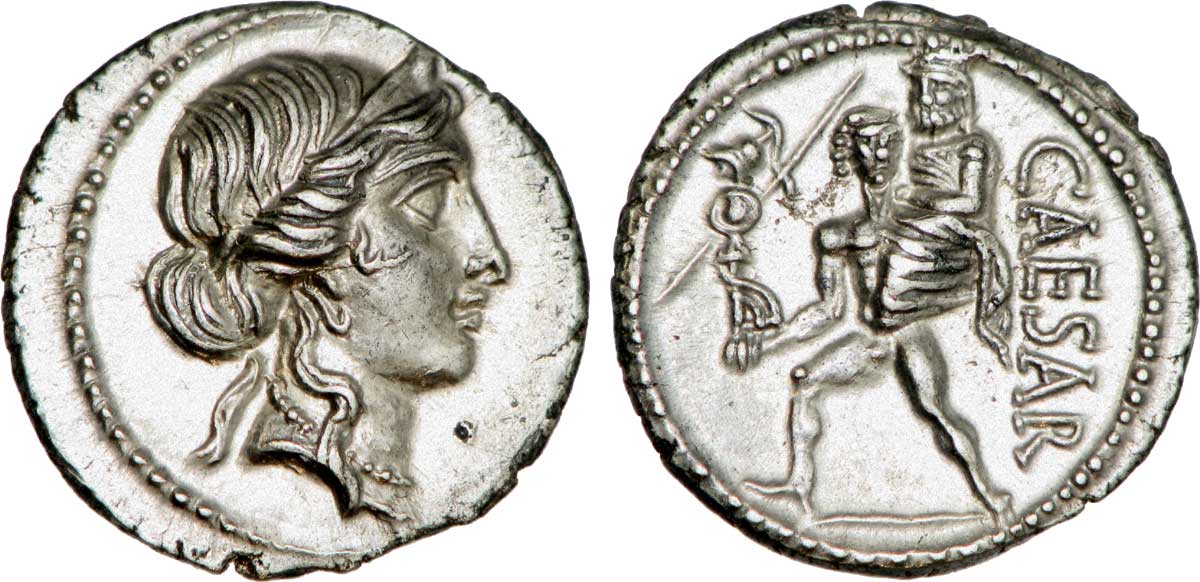Aeneas
Aeneas, a Trojan prince destined to become the progenitor of Rome, led his people to safety after the fall of Troy.

Parents: Anchises and Venus
Consort: Creusa, Dido and Lavinia
Children: Ascanius/Iulus
Escape from Troy
Driven by divine command, Aeneas, a Trojan hero who escaped the fall of Troy, led a band of refugees on a perilous quest for a new homeland. Carrying the sacred Lares and Penates, statues embodying the Trojan spirit, Aeneas sought to fulfill his destiny as the progenitor of a great civilization.

His companions, a loyal band including his son Ascanius, the faithful Achates, and the skilled helmsman Palinurus, faced numerous hardships. One such trial came in Sicily, where Aeneas’s aged father Anchises found peace in death.
Carthage
Battered by a tempest conjured by the vengeful Juno, Aeneas and his Trojan fleet limped into the newly built city of Carthage after six years adrift. There, he found solace in the arms of Queen Dido, a passionate ruler who yearned to unite their peoples. Their love blossomed, and for a year, Aeneas dreamt of a shared destiny with Dido.

However, fate, steered by the machinations of the gods, intervened. Mercury, Jupiter’s messenger, arrived with a stark reminder: Aeneas’ true purpose lay in founding a new Troy, a future Rome. Torn between love and duty, Aeneas chose the latter, compelled to leave Carthage under the veil of night.
Dido’s heart shattered. Betrayed and filled with rage, she cursed the lineage of Aeneas, vowing eternal enmity between Carthage and the city he would build. In a final, tragic act, she took her own life with the very sword she had gifted him, a symbol of their love forever stained by his departure.
The Underworld
Leaving behind Dido’s palace and the weight of her curse, Aeneas steered his fleet back toward Sicily. There, he honored his father Anchises with elaborate funeral games, a bittersweet celebration of a life well-lived.
Driven onward by his destiny, Aeneas led his people across the sea, finally reaching the western shores of Italy, the land promised by the gods. Here, a pivotal moment awaited. Aeneas, seeking guidance and solace, ventured into the perilous depths of the Underworld.
Within the realm of shades, a poignant reunion unfolded. Aeneas encountered the spirit of Dido, their past love a bittersweet memory. He also sought counsel from his wise father Anchises, who unveiled a breathtaking vision – the glorious future of their descendants, the rise of Rome.
Anchises’ prophecy unfolded like a tapestry woven with threads of destiny. Aeneas witnessed legendary figures yet to come – Julius Caesar, the iron-willed leader, and Augustus, who would usher in an era of peace. This glimpse into the future solidified Aeneas’ resolve. He would persevere, for he carried the weight of an empire on his shoulders.
Italy
Exhausted but resolute, Aeneas’s band of Trojans finally reached Latium, the western coast of Italy. There, they found a haven under the rule of King Latinus. The king, swayed by a prophecy of a foreign union that would bring greatness, welcomed Aeneas and offered his daughter Lavinia’s hand in marriage.

However, this betrothal sparked outrage. Turnus, a rival king who had been promised Lavinia’s hand, declared war, fueled by the manipulative goddess Juno and Queen Amata, Lavinia’s mother, who opposed the foreign match. A fierce conflict erupted, engulfing Latium in flames.
Aeneas, driven by destiny and the promise of a future Rome, emerged victorious. Turnus fell in battle, and Lavinia became Aeneas’s wife. To commemorate this pivotal moment and his newfound family, Aeneas founded a city on the Latium coast – Lavinium – named after his beloved Lavinia.
